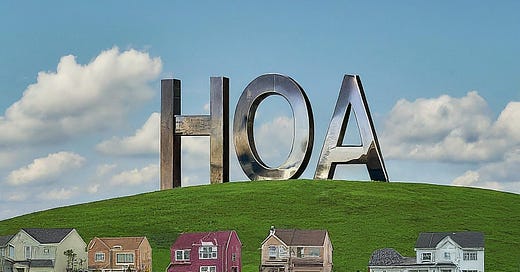HOAs in the Philippines: The Good, the Bad, the Ugly
Like any organization, the existence of HOAs brings both positive and negative impacts to homeowners
Homeowners' associations (HOAs) are increasingly common within gated subdivisions and condominium developments across the Philippines. HOAs are designed to provide communal management, maintenance of shared amenities, and a sense of security within a governed community. However, like any organization, their existence brings both positive and negative impacts to homeowners.
Positive Impacts of HOAs
• Maintenance of Shared Amenities: HOAs take care of public spaces and amenities like parks, swimming pools, and clubhouses. They ensure regular upkeep and cleanliness, improving the overall standard of living in the community.
• Property Value Preservation: Strict HOA covenants and restrictions concerning the appearance and use of properties contribute to maintaining aesthetically pleasing environments, subsequently protecting and potentially increasing property values over time.
• Sense of Community: HOAs organize events and activities for residents, promoting neighborliness and a sense of belonging within the community.
• Enhanced Security: Many HOAs adopt security measures like gates, guard patrols, and surveillance systems to deter crime and maintain safety within the development.
Negative Impacts of HOAs
• HOA Fees: Homeowners typically incur monthly or annual HOA fees. These fees can be financially burdensome for some residents, particularly if they rise unexpectedly.
• Restrictions on Freedom: HOAs enforce rules governing architectural aspects, allowed renovations, landscaping, pet ownership, and even acceptable colors for houses. While intended to ensure uniformity, these rules might feel overly restrictive for homeowners who value more autonomy.
• Conflicts and Disputes: Disputes frequently arise among homeowners, board members, or against the HOA itself. These can revolve around diverse issues like rule enforcement, alleged discrimination, or misuse of HOA funds.
• Potential for Lack of Transparency: HOA mismanagement and a lack of financial transparency can become causes of concern. In some cases, mismanagement may even result in hidden fees or financial irregularities.
Weighing the Benefits and Drawbacks
While HOAs offer advantages, it's imperative for Filipino homeowners to carefully consider the potential drawbacks before residing in an HOA-governed community. Here are a few questions to ask:
• Are there clear and reasonable community rules and regulations?
• How transparent and accountable is the HOA board's management and financial record-keeping?
• What are the exact monthly or annual HOA fees?
HOAs in the Philippines have a mixed impact on homeowners. They serve vital functions, particularly upholding quality standards and managing shared resources. However, they can also generate restrictions, disputes, and financial burdens. Homeowners must be fully informed of the implications of living within an HOA community to make a decision that aligns with their priorities and lifestyle preferences.
Source References
• Del Valle, G. (2021, November 6). *What makes buying a house with an HOA different? * Lamudi.
• Republic Act No. 9904 (The Magna Carta for Homeowners and Homeowners' Associations). (2009).
• Suarez, D. (2022, April 18). Pros and Cons of Living in a Subdivision. ZipMatch.




